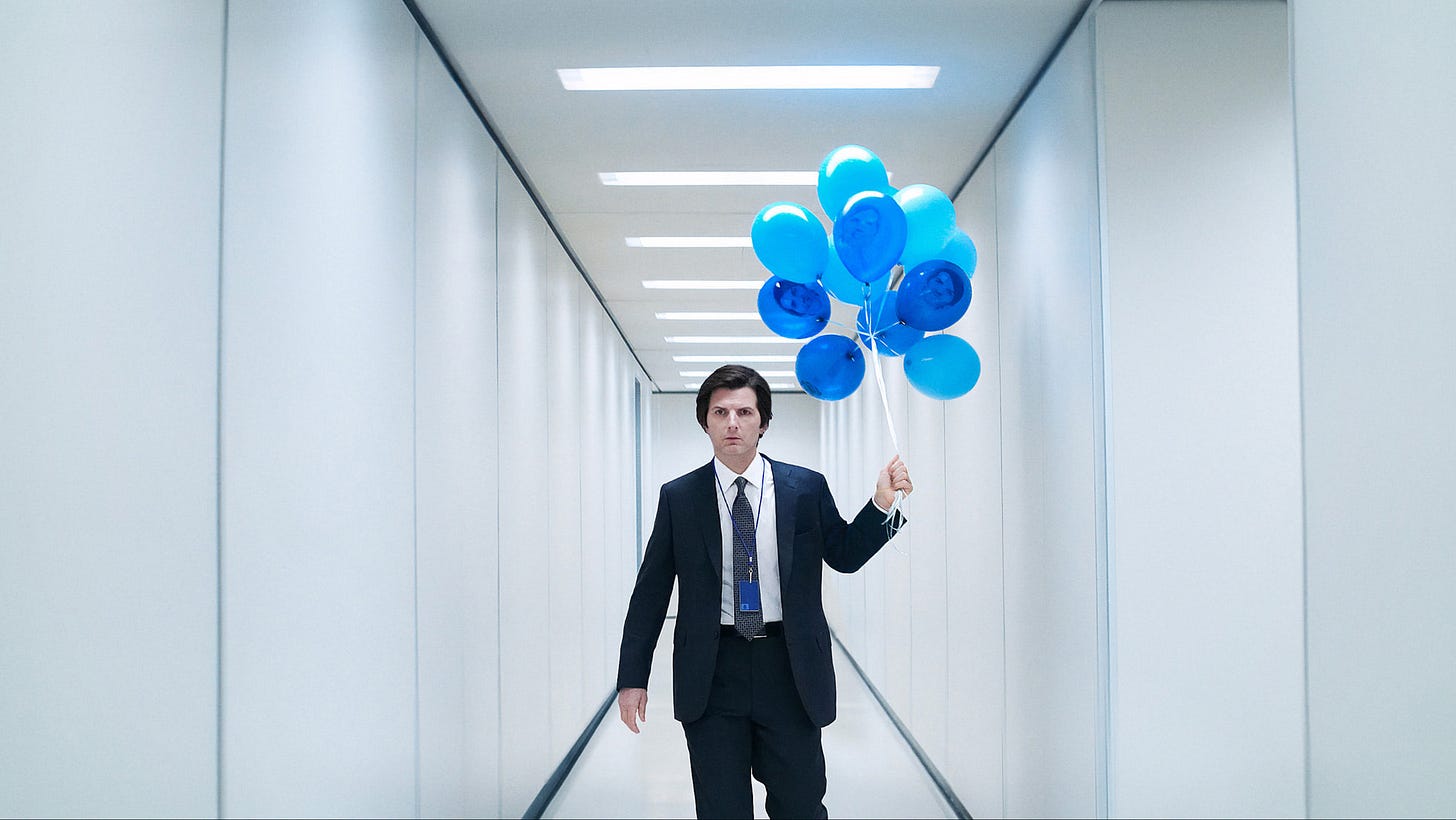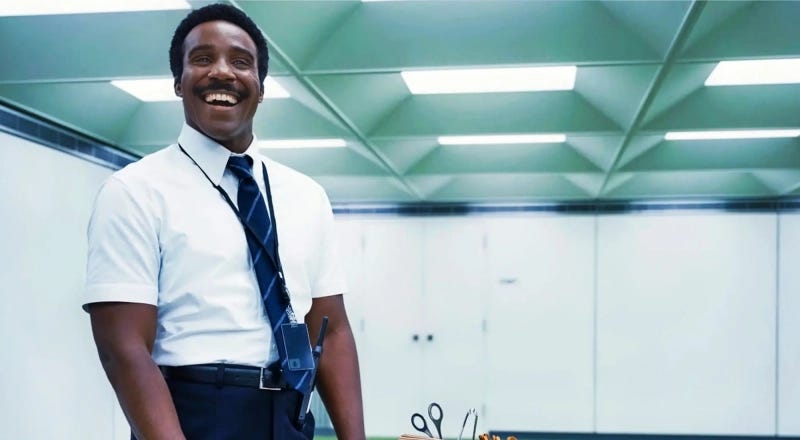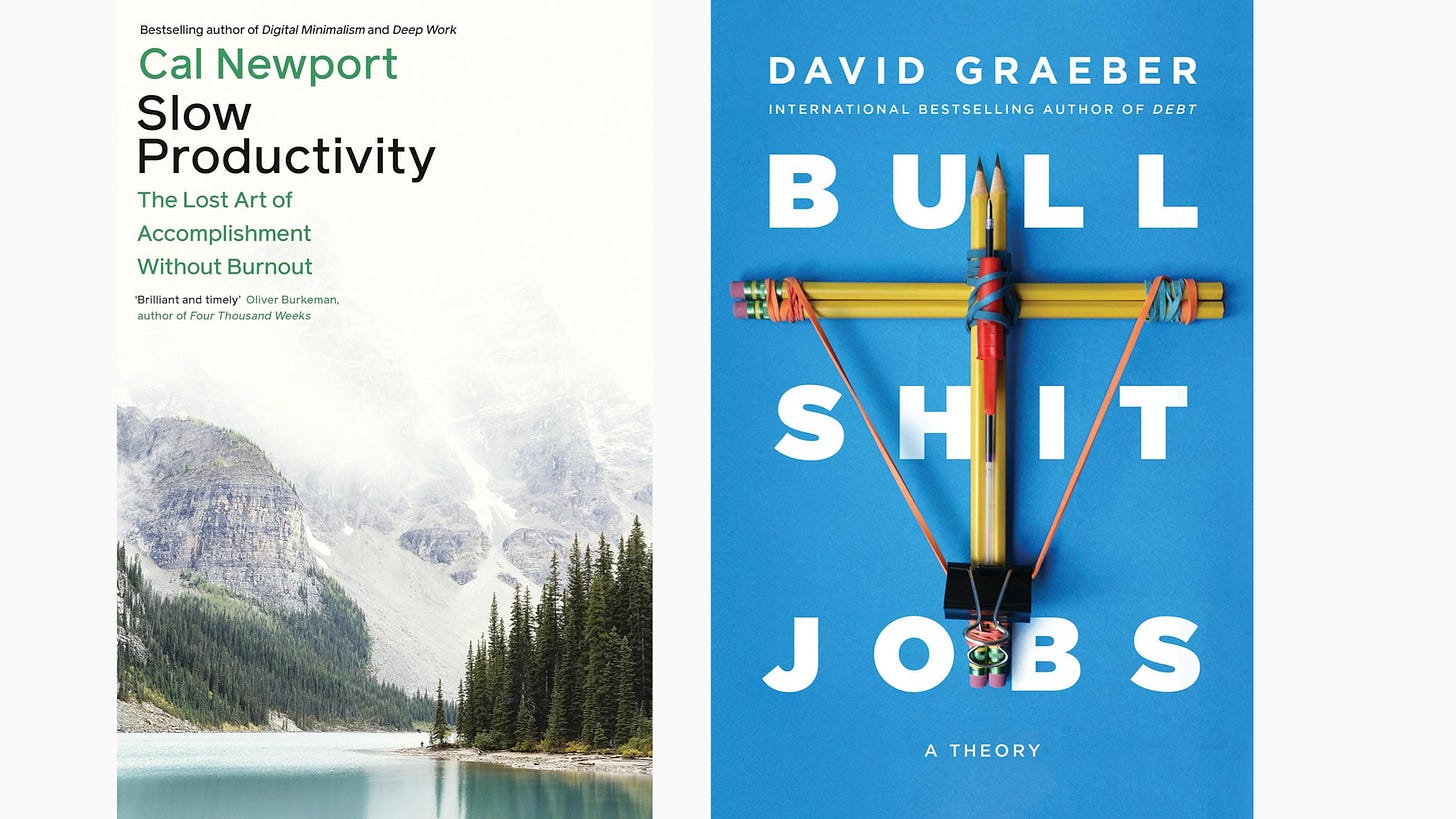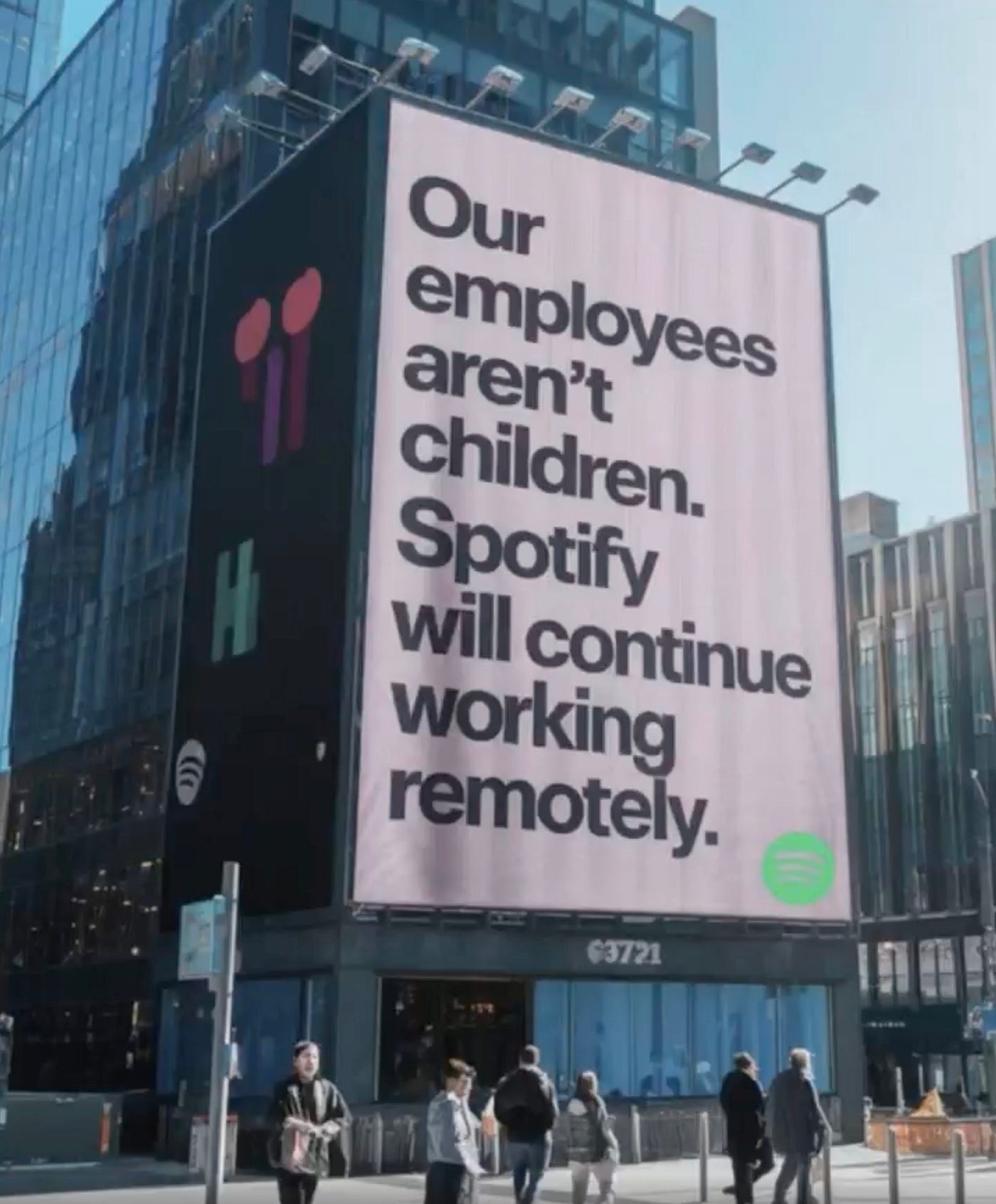Who doesn’t want to return to office 5 days a week?
Maybe the new season of Severance has some answers
Severance S2.E1 arrived. (If you haven’t seen it, don’t worry - this article will still make sense and there are no spoilers.)
Severance perfectly captures our changing relationship to work - and most importantly how absurd a lot of white-collar office-work has become.
This isn’t a new insight, we can go back to the bureaucracy of Terry Gilliam's film Brazil, the egocentricity and little man fiefdom of The Office, 2001 in UK, and David Graeber’s book “Bullshit Jobs: A Theory” in 2018.
Each captures something - the rise of managerial feudalism in corporate structures, a work ethic that values employment as simply an end in itself, and the wider political and economic systems that prioritize job creation over job quality.
“work…even the employee cannot justify its existence even though, as part of the conditions of employment, the employee feels obliged to pretend that this is not the case.”
David Graeber’s book “Bullshit Jobs: A Theory”
Severance dials up the extremes, the divided self, the work face vs the private self - how well do you know anyone you work alongside, and ultimately, how well do you know yourself? You have two lives, one that pretends to be a grown up and shows up for work, and one that sits at home in sweatpants watching TV, covered in nachos. I’ve seen you.
Popular culture and meme culture has encapsulated this division - quiet quitting, double jobbing and lately revenge quitting. This has given way to open hostility at the notion of work and the broader economic systems - systems that, no matter how hard you work, never seem to improve and never have your back.
Series 2 drops as the debate around ‘Return to Office’ rolls on. The show continues to capture the banality of office life - work as goldfish bowl, mythology and cult. Illustrated through superb art direction, camera work and lighting we walk a maze of white corridors - experience the placelessness of corporate spaces, the lack of design intention and thought - the endless walks to do the simplest of tasks - Severance maxes out the office disorientation. Who hasn’t stepped out of the elevator on the wrong floor of an office block, or struggled to find the kitchen in a new building? I once worked for a tech company that hotdesked across 10 levels of a sprawling WeWork - so even if you went to the office, you were never sat near anyone you directly worked with - defeating the whole objective of a shared work space.
Work is one thing, but going back to the office is suddenly quite another. What we wouldn’t have thought twice about before Covid is now unacceptable - unthinkable even. Why?
1. Threat
As Covid ended, inflation bit, AI arrived and somehow we’ve gone from being valued employees with full and colourful personalities, rich lives and complex needs to economic units - productivity ratios - lines on a spreadsheet, interchangeable with AI and one financial dip away from a layoff. Mr. Milkshake would like to see you in his office (that’s a Severance joke.)
2. Focus
Then there’s the increased workload and the always on-ness of modern work. Cal Newport talks about this in his book Slow Productivity, and focuses on a number of endemic issues, the primary one being that people don’t have time and space to think, to process, to actually get some work done in between the meetings, the chatter of Teams, Slack, and Email - every moment is sabotaged and the prospect of getting something achieved or immersing yourself in meaningful deep work is always just out of reach.
3. Time
We’ve created systems that can exponentially multiply workloads - multiple stakeholders, spiralling FYI’s, comments and feedback that can’t be absorbed, or acted on, before the next meeting. Priorities are blurred, immediacy seems to dictate importance and processes are often reduced to just getting a task off a managers desk, onto someone else's. So what does every overloaded worker need? A daily commute back to place where you can’t focus or get things done of course.
4. Meaning
Capturing the mindlessness of office tasks, Severance workers minesweep numbers on a screen, not knowing why they are doing it, yet being satisfied with the familiarity and repetition. Out here, in the real world - millions fill in cells on spreadsheets to help them make decisions which are ultimately ignored or have no real consequences. It’s life inside a David Byrne lyric - a proxy sense of purpose and pseudo belonging - but for most people, it appears to be better than no purpose at all. It’s not what you achieve - it’s about what you are seen to achieve that counts.
'For introverts and the neurodiverse the thought of being on display, caught up in the rituals of a space you can’t escape, nine hours a day, makes a return to the office more difficult than ever.’
5. Visibility
Is being seen what it’s all about? Does being seen give larger corporations a sense of control? No debate, no discussion, 4 or 5 days back in the office - your corporation needs you!
It’s kind of understandable if your work revolves around constant on-site collaboration - but so much work doesn’t. For introverts and the neurodiverse the thought of being on display, caught up in the rituals of a space you can’t escape, nine hours a day, makes a return to the office more difficult than ever. And remember, if you’re not enjoying every moment, beware the next round of layoffs.
In “Bullshit Jobs: A Theory” David Graeber defines a bullshit job as “a form of paid employment that is so completely pointless, unnecessary, or pernicious that even the employee cannot justify its existence even though, as part of the conditions of employment, the employee feels obliged to pretend that this is not the case.”
So, let’s enjoy Season 2 of Severance, get back to your office and pretend that everything we do makes a difference. Chin, chin.
Coming soon - some positive reflections and ideas about office design, work life, environment and culture (promise.)






Great piece fella. We’ve been sold the line that our work provides our lives with purpose and meaning, which patently isn’t true for so many people as per the point about bullshit jobs. I think a lot of people are starting to make it much more transactional - get the most out of it (money, benefits etc) for the least cost to your mental health. But it’s pretty fucked up if the only way you can survive it is to start caring less.